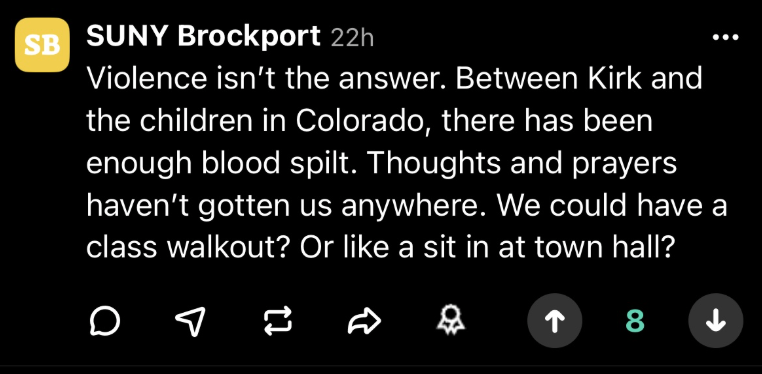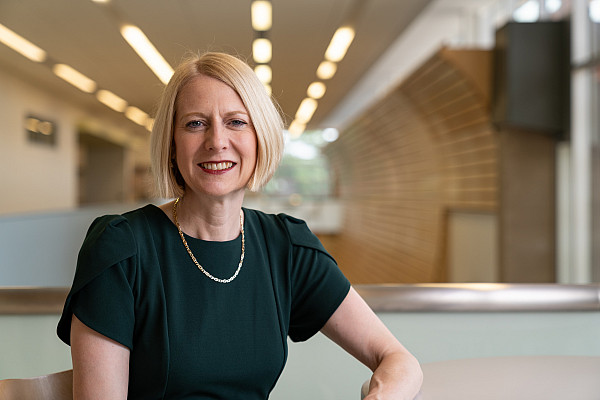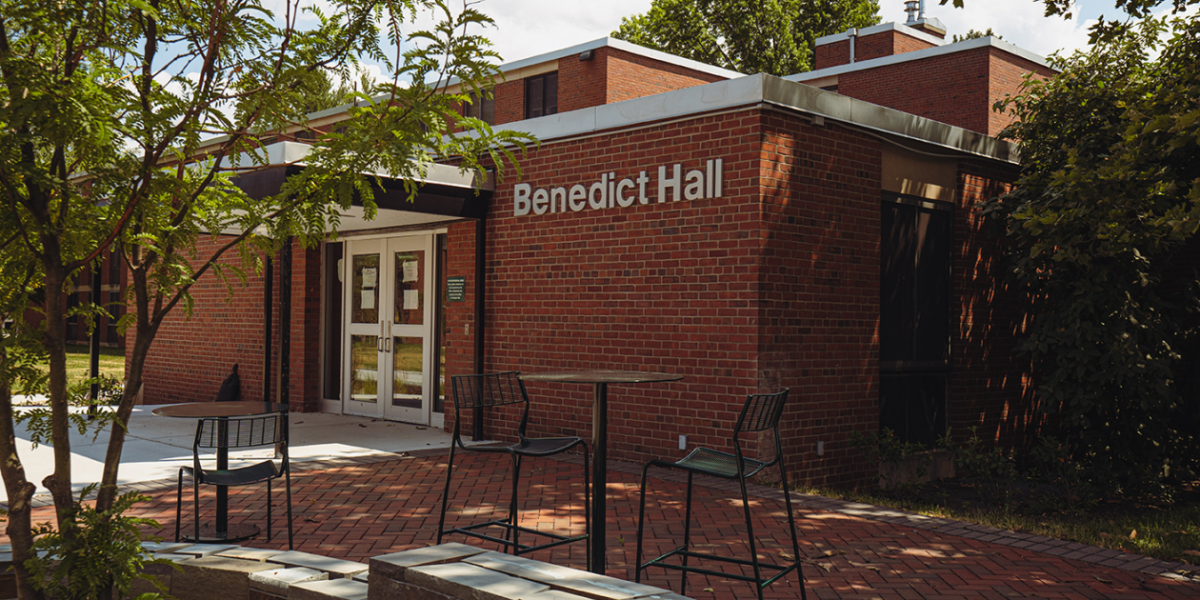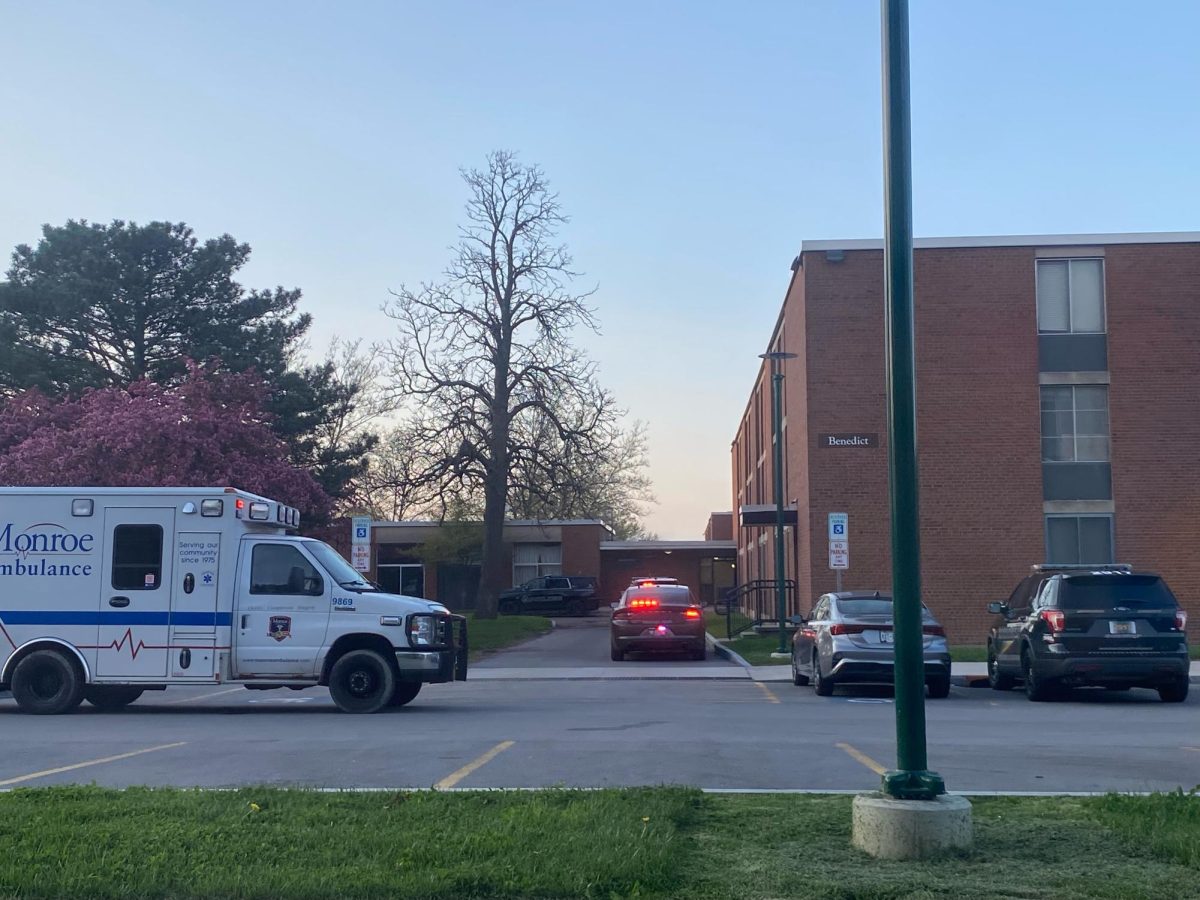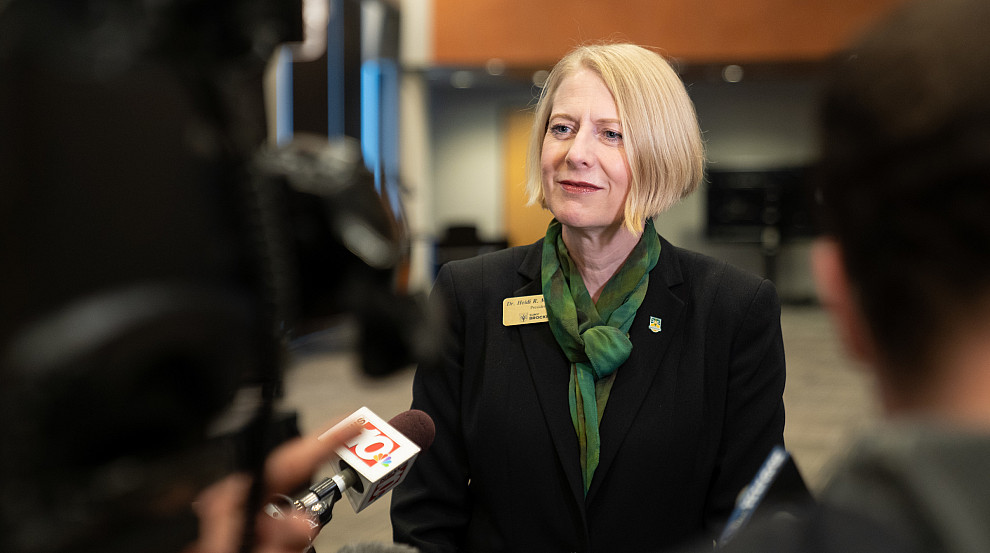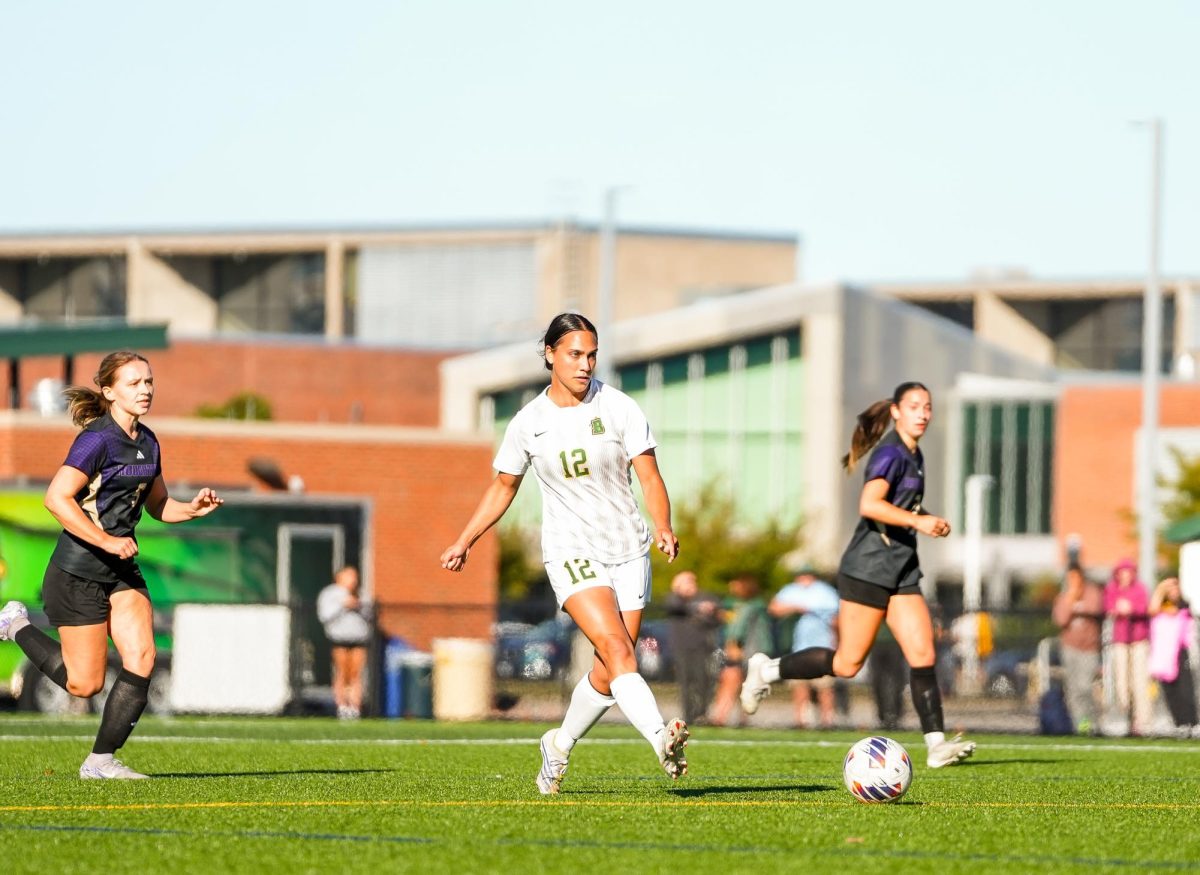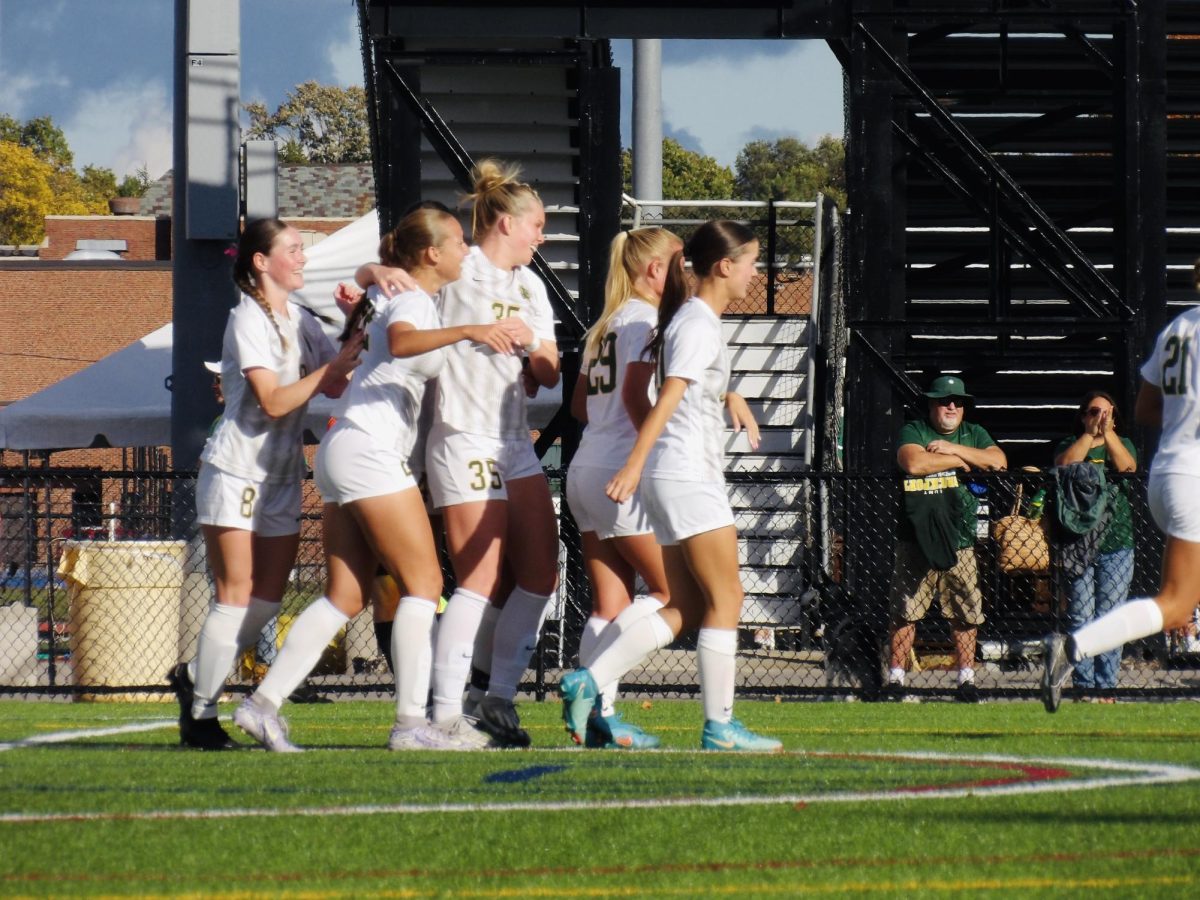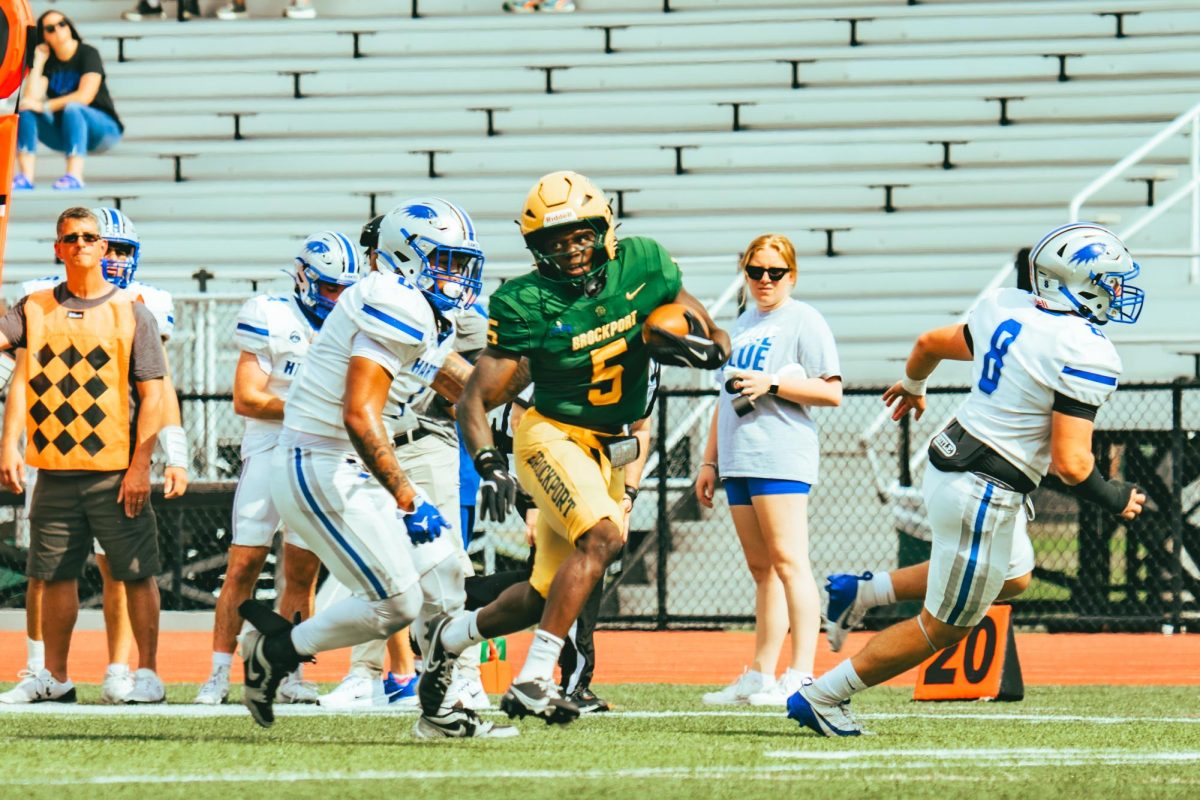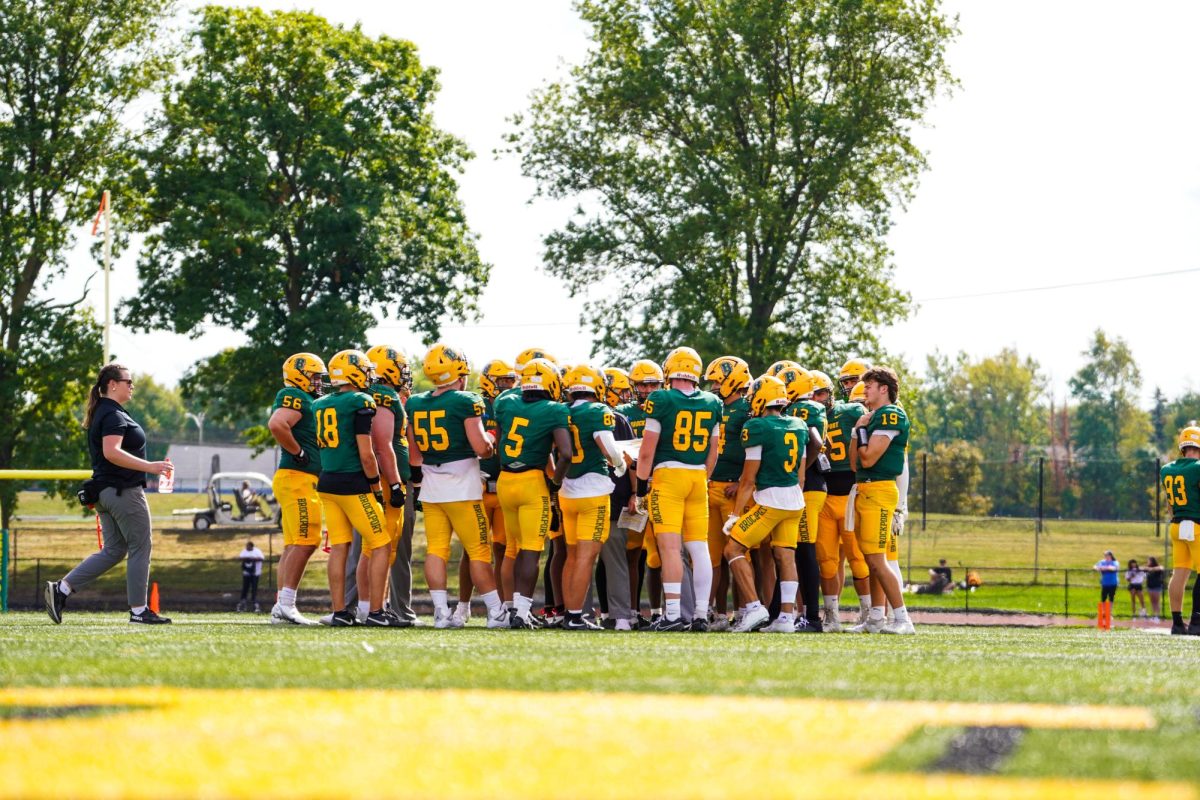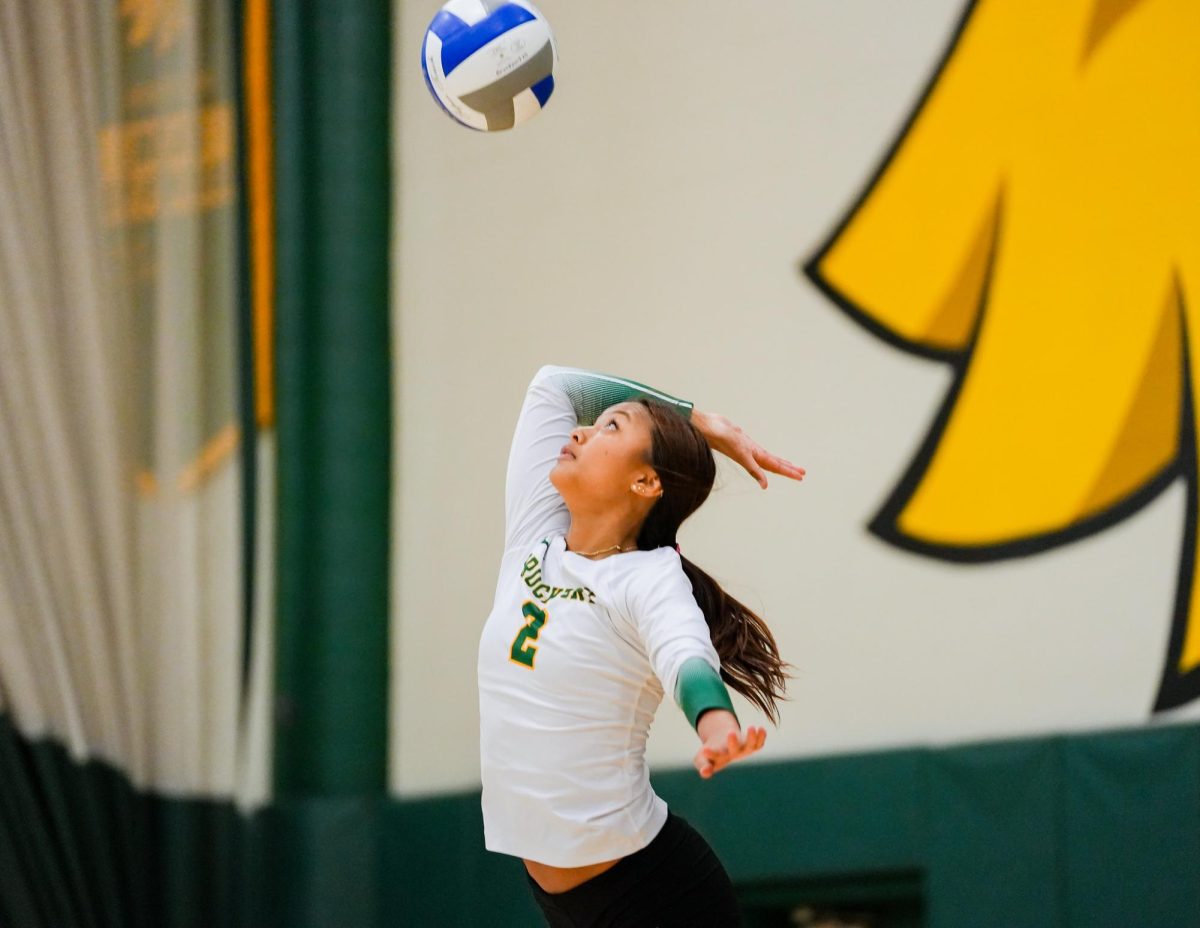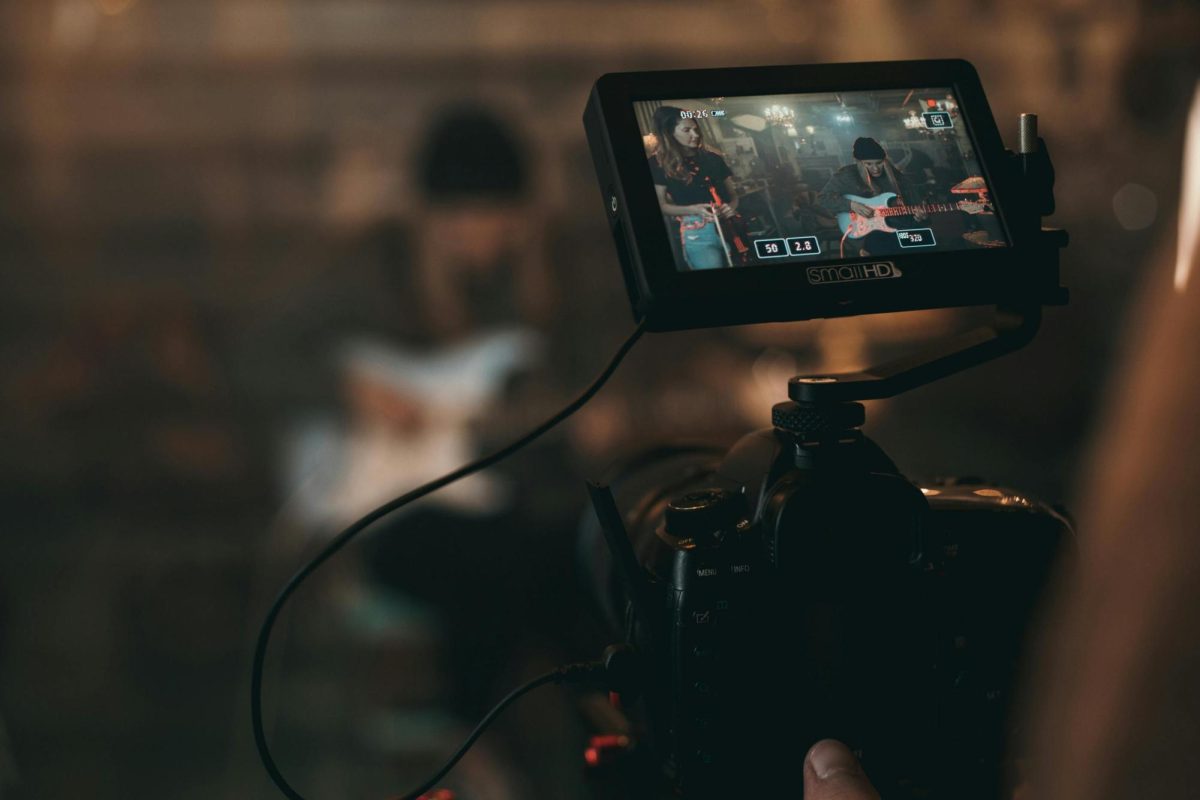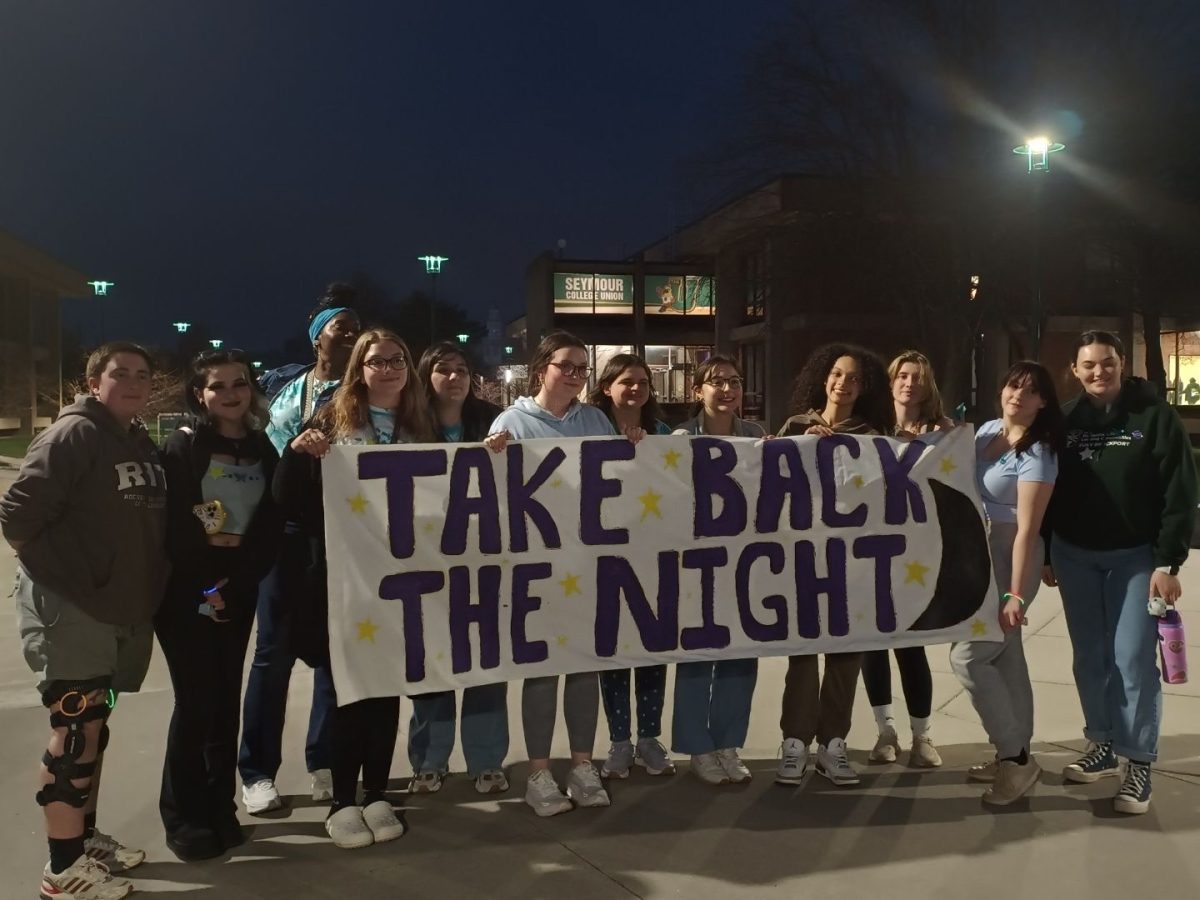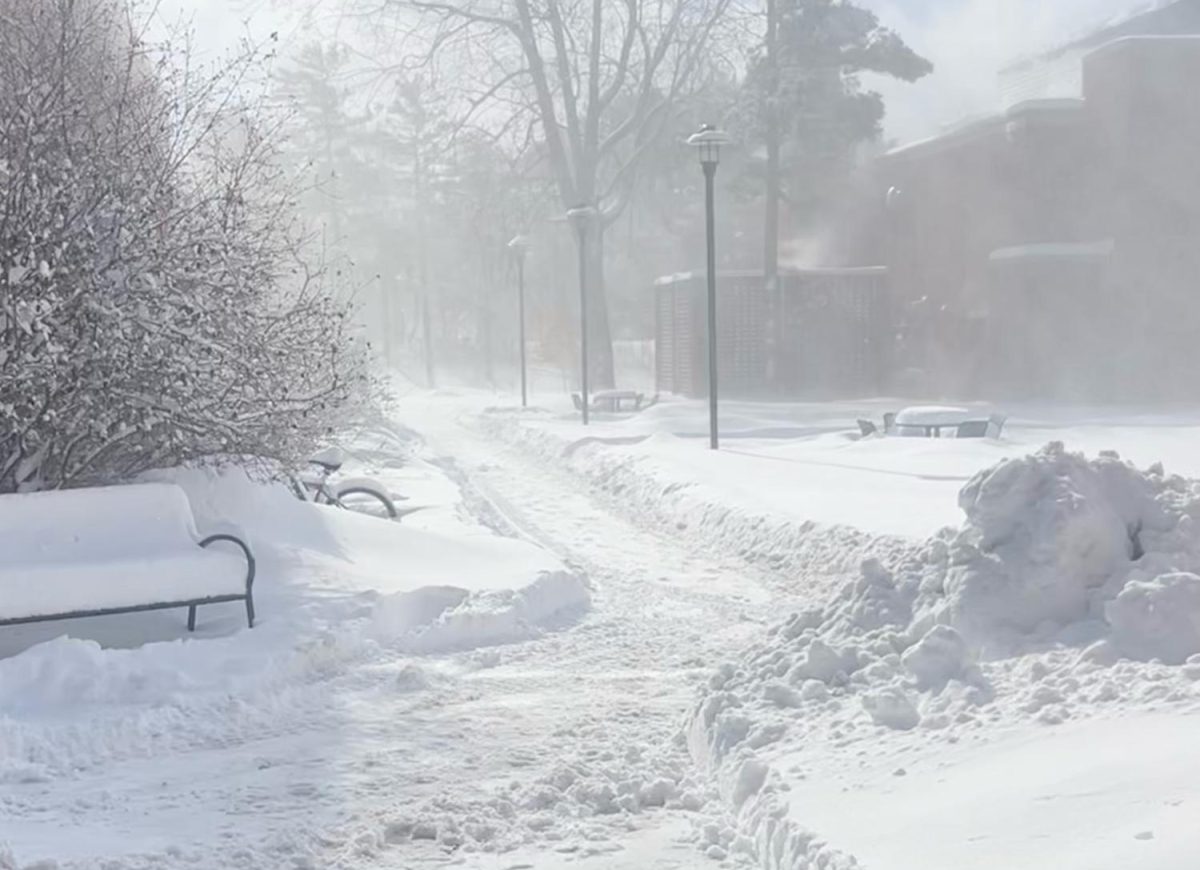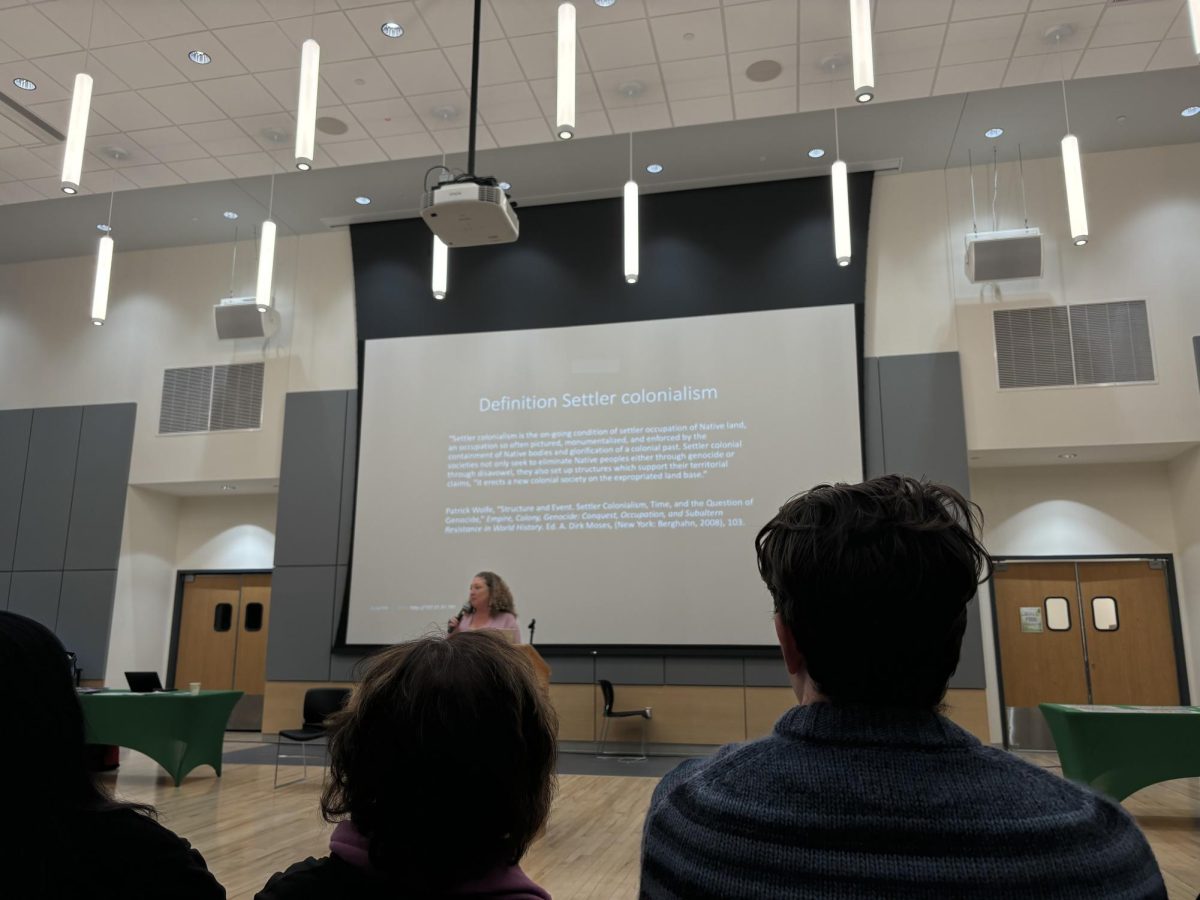Indigenous Peoples’ Day is on the second Monday of October each year, and this year SUNY Brockport has placed a special emphasis on Indigenous history, experiences and voices. SUNY Brockport sits on land that once belonged to the Onöndowa’ga Nation, or Seneca, so the events held on October 17 were meant to meaningfully address this fact.
The events were held throughout the day and involved educating people about the culture and social issues surrounding the nearby Tonawanda Seneca Nation. This came in the form of cultural dances, traditional food tastings and educational talks given by members of the Tonawanda Seneca Nation.
The keynote speaker for these events was Tonawanda Seneca member and Chair of the Department of Indigenous Studies at the University at Buffalo Dr. Mishuana Goeman. Goeman has experience with land acknowledgements at the University of California, Los Angeles (UCLA). Her Indigenous background also provides a wealth of personal experience to add to the conversation.
The discussion was opened by Assistant Professor of Military Science Major Cherelle Garner and Assistant Professor of Anthropology Dr. Neal Keating, both of whom are involved in Indigenous studies and working towards making SUNY Brockport a more culturally aware and informed campus. Garner emphasized the important role that students play in making these changes happen.
“Now it’s an official presidential proclamation to recognize Indigenous Peoples’ Day. So, it’s good that our federal government is finally taking the steps to kind of change some of those revisionist histories, as they say. And by the time you all graduate or you guys are off to bigger and better things, you’ll get to see that change complete and continue to push forward on making a difference,” Garner said.
Keating then spoke about the intention of the Indigenous Land Acknowledgement Committee he leads and the greater purpose of forming a relationship between the university and the Tonawanda Seneca Nation.
“We are really pumped up about this day. That’s the first thing. This is a big achievement for this committee,” Keating said. “It’s not the only achievement that we are aiming for, though. We are aiming to transform the relationship between SUNY Brockport and the Tonawanda Seneca Nation. We want to make Brockport a place that is welcoming and supportive for Native students to attend here, and that’s welcoming and supportive for Native faculty to come here and teach.”
The Indigenous Land Acknowledgement Committee was officially formed in the 2023 spring semester and comprises faculty, staff and students that discuss matters of land acknowledgments and relations between SUNY Brockport and the surrounding Indigenous nations.
“The reality is that SUNY Brockport operates on the unceded territory of the Onöndowa’ga peoples. And until now, this has not been officially recognized. We are trying to remember where we are, where we are learning, where we are teaching, and where we are studying,” Keating said.
Goeman discusses how the language of land acknowledgements is important, but even more important is the intent that precedes them and the actions that follow.
“I want to build upon the previous work on Indigenous methodology of creating what I call anti-colonial networks through the form of land introductions, and extend it to how we might begin to form better relationships in New York with our institutions, right? With our state institutions, that becomes important to think of,” Goeman said.
While the intention of land acknowledgments is typically in a good place, Goeman emphasizes that it is not as simple as a sentence on a website. To fully acknowledge the land an institution is on, it is crucial to understand the history and oppression through which that land was gained.
“That lack of knowledge that still exists within our universities is something that I want to counter and try to work with. But the only way to do that is to bring community in and to set up spaces where that can be done,” Goeman said. “But it is not that simple to have survived years of brutal colonization and attempts to eradicate a tribal sense of place, a tribal peoples and indigenous nations’ futurity.”
In terms of the future for Indigenous nations and universities, Goeman believes the solution lies in education and willingness to acknowledge the painful past, not just the land.
“Universities are often seen as democratizing, or a way to move up the line. But in some ways, we have to really be critical and think critically about what these institutions mean,” Goeman said.
The Indigenous Land Acknowledgement Committee plans to hold events similar to this one each year to celebrate Indigenous Peoples’ Day and strengthen the bond between the Seneca Nation and SUNY Brockport for future generations. This includes the education and pushing forward from the land acknowledgement that Goeman discussed to foster acceptance and equitability.

